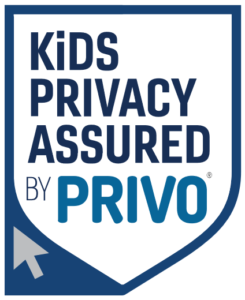We all want our students to improve their intercultural communication skills, become empathetic global citizens, and communicate skillfully. However, our virtual exchange can often highlight that even the most worldly and cosmopolitan of our students need practice with intercultural communication. With a clear understanding of effective communication across cultures, we educators can, through our telecollaboration classroom activities, present them with safe but instructive learning moments.
What is Intercultural Communication?
Above all, students should look beyond their interpretation of the world around them; in other words, remind them that their customs, practices, privileges, and in some cases, laws, and moral proclivities, may not be universally shared. While this may seem obvious at first, it never ceases to be a wonder to educators how much of a cause for bewilderment cultural differences can become to their students. Don’t forget, awe and surprise are kind of the goal here, and ultimately, we want our students to feel some degree of delight at discovering new ways of thinking and experiencing the world. It’s how they engage with these revelations that makes all the difference.
Intercultural communication happens at its best in activities where there is always an undertone of genuine, innocent curiosity and interest. That’s why so many of Level Up Village’s modules prompt students to talk about what they know—their immediate surroundings, their family, and their community. When students practice healthy intercultural communication, they broadcast their interests, passions, and beliefs in their sharing; in so doing, through their ardor and affection for what is uniquely and culturally theirs they will fascinate and intrigue their international partners. And this genuine amusement with one another will guide their intercultural communication to its healthiest and most rewarding register.
Activities for Intercultural Communication
What are intercultural communication activities for students that can get them sharing earnestly with one another in healthy, respectful ways? If we’re asking them to start with what they know, you’ll need to prompt them to advocate and represent the cultural touchstones and artifacts of their world. Your students are never too old for a little Show and Tell. Whether the topic is history, the environment, music, stories, or science, your students are bright enough that if you asked them to present an object with significant value to their virtual exchange partner, they’d no doubt surprise you. Perhaps it’s an old guitar from Maui, or a street sign in their town that shares their last name, their 23 and Me results, or a website they made. The possibilities are endless, and whatever this Macguffin is that gets them talking, it will encourage both them and their partner and start some wholesome conversation between them.
Another great activity is engaging in healthy debate, whether you’re discussing politics, questions of equity and inclusion, or climate change, there’s always going to be differences of opinion. Instead of having them enter some sort of interlocutory struggle of ideas, what if you asked your students to summarize two or three different ways of seeing the issue—theirs, as well as other predominant and opposing viewpoints. This way, they and their partner now begin to appreciate the many voices in a dialogue, and it’s less about arguing their point of view and more about reporting the complexity of the conversation at large. Enroll your students in a cultural exchange program today!
About Dan Pieraccini
Dan Pieraccini was born in Northern Italy, but was moved to the United States at the age of 6. Dan’s B.A. in English and M.A. in Italian literature have opened the door to over a decade of teaching high school and college students a second (and in some cases a first) language. It is likely that having traveled through 82 countries, 48 U.S. states, and three disputed territories somehow factored into the decision to make Dan Delbarton School’s first Director of Global Programs. In his spare time, he manages events at his local Elks Lodge, helps feed the hungry at a handful of food pantries, writes and performs rock and roll songs with his band Forget the Whale, plays in a Dungeons and Dragons game, and occasionally goes out to brunch.




